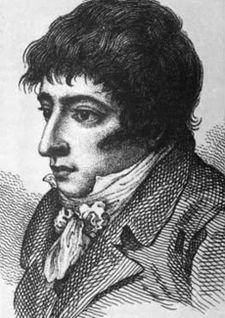Inglés/Castellano
Sephardic Jews have lived in many countries and lands. They have always brought with them a zest for life and a beautiful culture that is reflected in their creative work. In this seccion, a few of the many famous Sephardic Jews who have positively contributed to the world we live in. From rabbis to doctors and actors to poets, these Sephardic Jews have changed the direction and intensity of both the Jewish and Western World.
Los judíos sefardíes han vivido en muchos países y tierras. Siempre han traído consigo un gusto por la vida y una cultura hermosa que se refleja en su trabajo creativo. En esta sección, algunos de los famosos judíos sefardíes que han contribuido al mundo en que vivimos. Desde rabinos hasta médicos, desde actores hasta poetas, estos judíos sefaradíes han cambiado la dirección y la intensidad tanto del mundo judío como del mundo occidental.
——————————————————————————————
Daniel Mendoza

Daniel Mendoza (5 July 1764[a] – 3 September 1836) (often known as Dan Mendoza) was an English prizefighter, who was boxing champion of England in 1792–1795. He was of Portuguese-Jewish descent.
Before Mendoza, boxers generally stood still and merely swapped punches. Mendoza’s style consisted of more than simply battering opponents; his «scientific style» included much defensive movement. He developed an entirely new style of boxing, incorporating defensive strategies, such as what he called «side-stepping», moving around, ducking, blocking, and, all in all, avoiding punches. At the time, this was revolutionary, and Mendoza was able to overcome much heavier opponents as a result of this new style. Though he stood only 5 feet 7 inches (170 cm) and weighed only 160 pounds (73 kg), Mendoza was England’s sixteenth Heavyweight Champion from 1792 to 1795, and is the first middleweight to ever win the Heavyweight Championship of the World. In 1789 he opened his own boxing academy and published the book The Art of Boxing[3] on modern «scientific» style boxing which every subsequent boxer learned from.
Mendoza helped transform the popular English stereotype of a Jew from a weak, defenceless person into someone deserving of respect. He is said to have been the first Jew to talk to the King, George III. Mendoza was second for Tom Molineaux, a freed Virginia slave, in his fights.
Daniel Mendoza’s first fight occurred in 1780 when he was aged 16. Mendoza was working for a tea dealer in Aldgate. The fight was not a prize fight for a purse but a contest to settle a dispute with a porter over his remuneration for a consignment of tea. Mendoza stated that the porter, rather than charging his regular fee, behaved in a manner unfit for a gentleman, demanding twice the usual price. After much arguing between the proprietor of the tea dealership and the porter, the porter suggested that they should settle the dispute in a duel with fists. Mendoza believing that the porter was bullying his employer accepted the challenge on his employer’s behalf. The duel took place in the street outside the tea dealership in a hastily constructed ring. The fight lasted for forty five minutes ending when the porter declared that he was unable to continue. This victory brought a small measure of fame to Mendoza, stories of the fight spread through the surrounding neighbourhoods; portraying Mendoza as the talented whippersnapper who had not just beaten but thrashed his larger opponent.[4]
His early boxing career was defined by three bouts with his former mentor Richard Humphries between 1788 and 1790. The first of these was lost because Humphries’ second (the former champion, Tom Johnson) blocked a blow. The third bout set history in another way. It was the first time spectators were charged an entry-payment to a sporting event. The fights were hyped by a series of combative letters in the press between Humphries and Mendoza.
Mendoza’s memoirs report that he got involved in three fights whilst on his way to watch a boxing match. The reasons were: (a) someone’s cart cut in; (b) he felt a shopkeeper was trying to cheat him; (c) he did not like how a man was looking at him.
——————————————–
Daniel Mendoza (Aldgate, Londres, 5 de julio de 17641 – 3 de septiembre de 1836) (también conocido como Dan Mendoza) fue un boxeador inglés sefardí descendiente de Judeo-portugueses, campeón de Inglaterra del año 1792 hasta el año 1795. Es conocido como el padre del boxeo científico.
Antes de Mendoza, los boxeadores generalmente luchaban sin moverse mucho, y meramente golpeaban. El estilo de Mendoza era más trabajado, su «estilo científico» incluyó mucho movimiento defensivo. Él desarrolló un nuevo estilo de boxeo, incorporando estrategias defensivas: moviéndose alrededor del objetivo, agachándose, bloqueando y, más que nada, evitando ser golpeado. Para esa época, esto era revolucionario, y gracias a su estilo Mendoza era capaz de derrotar a enemigos de mucho mayor tamaño. Aunque solo medía 1,70 m y pesaba 75 kg, Mendoza fue el campeón peso pesado número 16 de 1792 hasta 1795, y es, hasta hoy en día, el único peso mediano ganador del Campeonato Mundial de Peso Pesado. En el 1789 , abrió su propia academia de boxeo y publicó un libro El Arte del Boxeo cuyas enseñanzas crearon las bases de lo que es hoy en día el boxeo.
Mendoza transformó el estereotipo del judío inglés de un hombre débil e indefenso a alguien merecedor del respeto. Se rumorea que fue el primer judío que habló con el Rey Jorge III.
Su temprana carrera fue definida por tres peleas contra su mentor, Richard Humphries entre 1788 y 1790. La primera pelea la ganó Humphries. Las otras dos peleas fueron ganadas por Mendoza. La tercera pelea marcó historia: fue la primera vez los espectadores fueron cobrados para ver un evento deportivo. Las peleas se hicieron famosas porque se publicaron en los diarios.
Las memorias de Mendoza indican que él estuvo involucrado en tres peleas mientras iba de camino a ver peleas de boxeo. Las razones fueron: (a) el carro de una persona lo molestó; (b) él sintió que un vendedor le estaba estafando; (c) no le gustó como lo veía una persona.
Leer más en eSefarad
Fuente: lastar.org / es.wikipedia.org
 eSefarad Noticias del Mundo Sefaradi
eSefarad Noticias del Mundo Sefaradi


Danny Mendoza fue uno de los numerosos púgiles judios que alcazaron entonces fáma, y llegaron a proclamarse campeones en cada una de las categorias en las que competian …
Segun cónsta en documentos boxisticos, hasta una treintena de boxeadores de este origen, ostentaron tal honor, algunos de manera efímera, en tanto que otros lo fueron durante un periodo dilatado, y en ocasiones exitóso …
La necesidad de «abrirse» camino en un entorno dificil y en ocasiones hostil, incitó a muchos jovenes judios procedentes entonces de familias emigradas a los EE UU, a iniciarse en la esgrima del boxeo con notable exito, algunos de ellos se convirtieron posteriormente en afamados empresarios del mundo de las doce cuerdas …